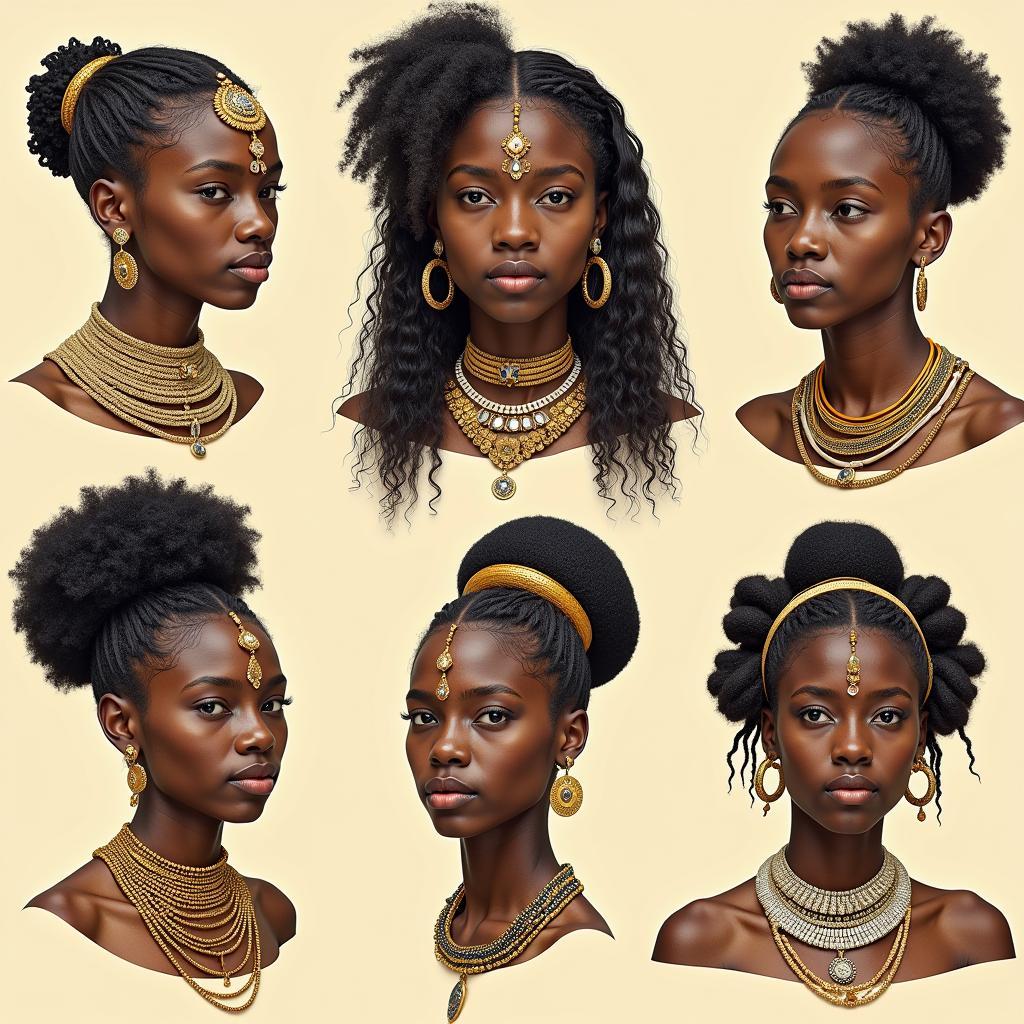Understanding African American Skin Color: A Guide to the Spectrum
African American skin color is as diverse as the continent from which it originates. While the term “African American” encompasses a rich tapestry of ethnicities and backgrounds, conversations about skin color often revolve around a limited understanding of its true range. This exploration delves into the fascinating spectrum of African American skin tones, going beyond simplistic charts to celebrate its beauty and complexity.
Beyond the Chart: Factors Influencing Skin Tone
While an “African American Skin Color Chart” might promise a simple categorization, the reality is far more nuanced. Genetics play a crucial role, with melanin, the pigment responsible for skin color, varying greatly among individuals. However, other factors contribute to the unique tapestry of African American skin tones:
- Ancestral Heritage: The African diaspora, encompassing forced and voluntary migrations, has resulted in a blending of genetic lineages from across Africa and other parts of the world. This intermixing has created a spectrum of skin tones that defies easy categorization.
- Environmental Influences: Exposure to sunlight stimulates melanin production, leading to variations in skin tone even within families. Individuals living in sun-drenched regions may have naturally darker complexions compared to those residing in less sunny climates.
Celebrating the Beauty of Diversity
The beauty of African American skin lies in its remarkable diversity. From the deepest ebony to lighter brown hues, each shade tells a story of heritage, resilience, and individual beauty. It’s important to move away from eurocentric beauty standards and embrace the unique characteristics that make each complexion special.
- Beyond Colorism: The diversity within African American skin tones has, unfortunately, been subjected to colorism—a prejudice that assigns value based on the lightness or darkness of one’s skin. Challenging these harmful biases requires recognizing and celebrating the beauty inherent in every shade.
- Embracing Individuality: Each individual’s skin tone is unique and tells a personal story. By appreciating the variations in undertones, hues, and textures, we can move towards a more inclusive understanding of beauty that celebrates every individual.
Conclusion: Moving Beyond the Chart
While an “African American skin color chart” might seem like a straightforward tool, it often simplifies a complex and beautiful reality. True understanding comes from recognizing the multifaceted factors that influence skin tone and celebrating the spectrum of beauty within the African American community. Let’s move beyond simplistic representations and embrace the rich tapestry of diversity that defines us all.
Did you find this information helpful? You might also be interested in learning more about African American lace front wigs and African American plus size clothing, topics we cover extensively on our website. Explore our resources to discover more about celebrating and embracing the diversity of African American culture and style!
FAQs
1. What is the significance of melanin in African American skin?
Melanin is a pigment that gives skin its color and provides protection from the sun’s harmful rays. African American skin naturally produces more melanin, contributing to its beautiful range of darker tones.
2. How has history shaped the diversity of African American skin tones?
The transatlantic slave trade and subsequent migrations have resulted in a complex blending of African, European, and Indigenous American ancestries among African Americans, contributing to the wide spectrum of skin tones observed today.
3. Why is it important to challenge colorism?
Colorism perpetuates harmful stereotypes and creates divisions within communities. Recognizing the beauty in all shades of African American skin is essential for fostering inclusivity and equality.
4. How can we celebrate the diversity of African American skin tones?
By challenging eurocentric beauty standards, embracing individual uniqueness, and promoting positive representation in media and popular culture, we can celebrate the full spectrum of beauty within the African American community.
If you have any questions about African American culture or need assistance, feel free to contact us at +255768904061, email us at kaka.mag@gmail.com, or visit us at Mbarali DC Mawindi, Kangaga, Tanzania. Our dedicated customer support team is available 24/7 to assist you.
